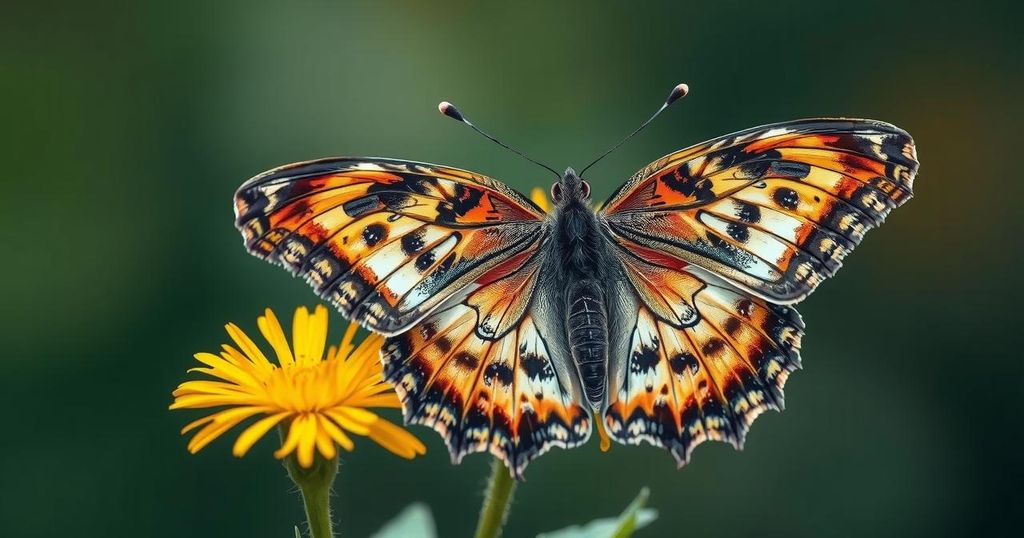Climate change poses a critical threat to butterfly populations in Greece, with rising temperatures leading to food scarcity, shorter flowering periods, and potential size reductions. A research project by the University of Ioannina, involving the monitoring of over 50,000 butterfly specimens, aims to highlight these trends. These challenges are compounded by increased wildfires, which destroy habitats and food sources.
In a controlled environment at a zoo located near Athens, vibrant butterflies are observed feeding on orange slices, safeguarded from the adverse effects of climate change that threaten their natural habitats both in Greece and globally. The rising temperatures present significant challenges for Greece’s butterflies, which encompass approximately 237 distinct species. The alterations in climate are leading to diminished food availability, decreased flowering durations, and potential reductions in the size of these insects. This phenomenon is not isolated to Greece; it is reflected worldwide, such as in Mexico and Britain, where certain butterfly populations have experienced considerable declines. “Climate change is impacting butterflies … that rely on temperature to perform essential activities such as mating, reproduction, growth, and feeding,” explained Mr. Konstantinos Anagnostellis, an agronomist involved in the matter. Mr. Anagnostellis is part of an investigative project titled MEIOSIS, which derives its name from the Greek term meaning shrinking, conducted by the University of Ioannina. This initiative entails analyzing the body weight of over 50,000 butterfly specimens collected over the past century to potentially illustrate their decreasing size as a direct response to the shifting climate. In light of the rising heat levels, butterflies are compelled to migrate to cooler regions which unfortunately offer less sustenance. Additionally, the increasing incidence of wildfires within Greece exacerbates this issue by further diminishing their food sources due to the destruction of grasslands. Mr. Anagnostellis remarked, “If these plants are burned, there is a risk of direct mortality for the larvae, and we may not have adult butterflies to reproduce, forcing them to migrate to other areas.”
The topic of climate change significantly affecting butterfly populations is of increasing concern within the scientific community. As temperatures rise globally, butterfly species are confronted with various threats, including habitat loss and reduced food availability. The situation in Greece serves as a critical case study due to its unique biodiversity, particularly the large variety of butterfly species it harbors. Understanding how these environmental changes impact biological functions such as mating and reproduction is essential for developing conservation strategies. Research initiatives, such as the one led by the University of Ioannina, aim to quantify these changes over time and assess their long-term implications.
In conclusion, climate change presents a severe threat to butterfly populations in Greece and around the world, diminishing their food resources and altering their habitats. The research conducted by experts like Mr. Konstantinos Anagnostellis highlights the urgency of addressing the impacts of climate change on these vital pollinators. Sustained efforts in research and conservation are essential to safeguard these species from further decline and preserve their ecological roles.
Original Source: www.swissinfo.ch







